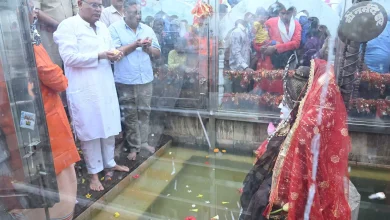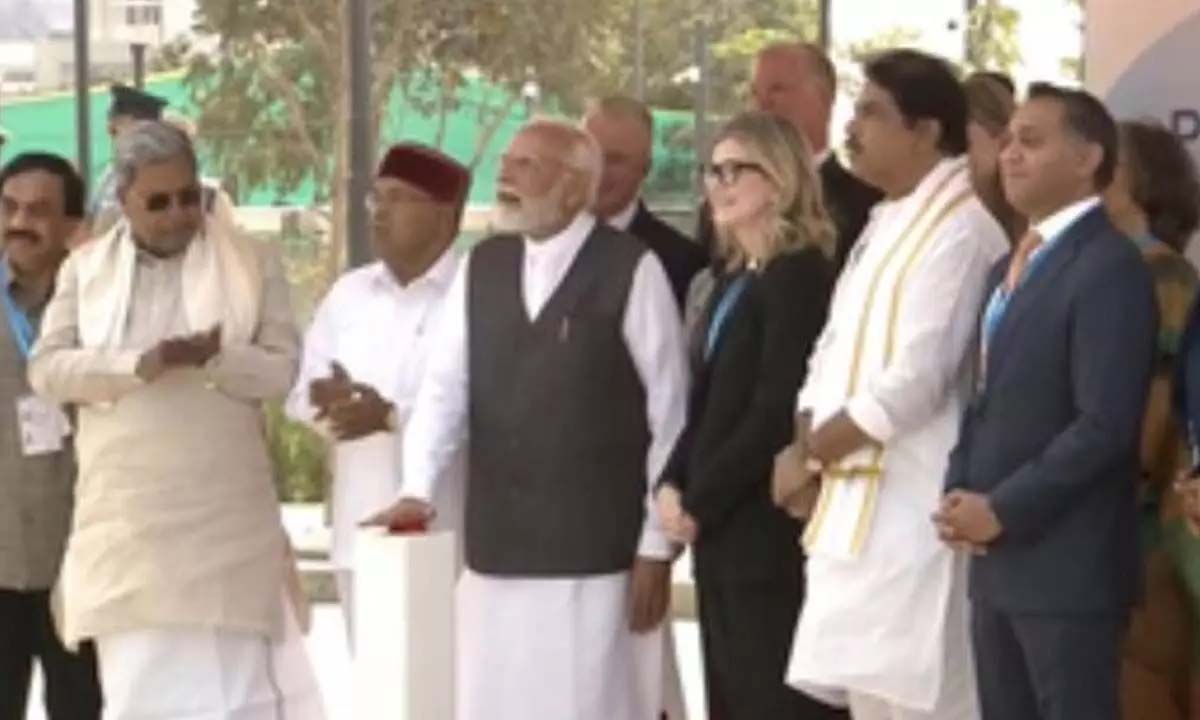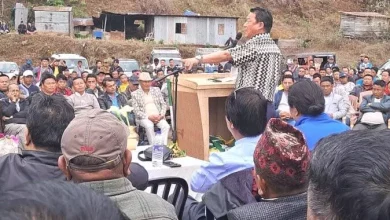Punjab: Making youth employable abroad through skill upgradation

Punjab: The scenes emanating from the gurdwara located in Talhan village of Jalandhar were once very glamorous. People wishing to settle abroad had unwavering faith in the gurdwara and offered toy planes there and prayed for their wishes to be fulfilled. Though the gurdwara management has now discontinued this practice, its media coverage in the past portrayed Punjab as a prosperous and happy state. Over the years, this migration has also brought wealth, with rural homes being converted into havelis, luxurious cars parked in garages. Anyone settling abroad was looked at in awe and even marriage proposals were made. Families of NRIs also used to install concrete models of planes on the roofs of their houses, announcing their social upliftment. However, the flight that landed at Amritsar airport on February 5 carrying 104 Indians from the US exposed the dark side of this migration story. Most of the deportees had one thing in common – their families had taken huge loans from moneylenders to send them abroad, that too at high interest rates. This was done in the hope of improving their economic condition stemming from unprofitable agriculture and lack of employment opportunities. The youth too took settling abroad as a quick solution to problems.
Hoping for a bright future, many undertake months-long arduous journeys, traversing difficult terrains and dealing with security challenges, while crossing several countries through the illegal “donkey” route – an illegal route used by migrants to enter a foreign country. Families of several US deportees have alleged that travel agents charged them up to Rs 50 lakh to send their children abroad through legal means, but then forced them to undertake months-long journeys to the US. This mad rush had its social disadvantages too. Many villages like Dayalpura and Mandi Rampurian, located between the towns of Phillaur and Phagwara, have undergone demographic changes, with entire families at times moving abroad. The deportation was not the first such case in recent years. According to recent data from the US’s ICE Enforcement and Removal Operations Statistics, the country has deported over 15,000 Indians in the last 15 years. The highest number of deportations took place in 2019, when 2,042 Indians were sent back. However, the earlier deportations did not attract controversy like the current case.
This time, visuals of “handcuffed, shackled Indians” being taken by the US in a military plane, which was directed to land in Amritsar instead of New Delhi or Gujarat, left a bitter taste and called for introspection by the government and society at large. Punjab Chief Minister Bhagwant Mann had claimed in April 2022 that his party would stop the brain drain by improving job conditions. In August last year, while handing out job letters to the youth, he claimed that “reverse migration has started with many youths returning home” to take up government jobs being provided by the AAP government. However, the situation is not satisfactory. Noted sociologist Paramjit Judge says, “Not only the donkey route, many people also entered into fake marriages, even brothers married sisters and entered abroad.” However, he says there is nothing wrong in migration and no one can stop it. “The British encouraged it when they took Punjabis abroad to develop agriculture in England and other colonies and to lay railway tracks in Africa. Voluntary migration took place a few years after Independence, though it has seen a sharp increase in the last decade,” he says.
Dr Pramod Kumar, director of the Chandigarh-based Institute for Development and Communication (IDC), also questions suggestions to stop it. “The issue is raised when rural people go abroad or are caught using illegal means. No one asks the affluent families living in Chandigarh why they have sent their children abroad,” he says. “It is sad that rural youth are always asked to preserve our heritage while educated persons, including government officials, settle their children abroad,” he says. Kumar said the real issue before the state is how to educate and skill the youth so that they can find gainful employment in foreign soil. He says the government should provide consultancy services in India and abroad to make the youth aware of potential employment opportunities. “In fact, the government should sponsor it so that no youth falls into the hands of scammers,” says Kumar.





